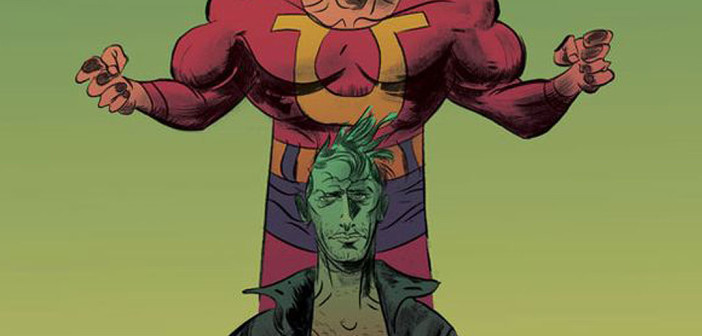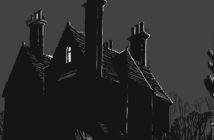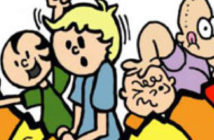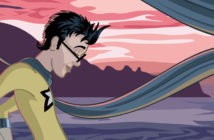During a 2001 interview with Gabriel Chouinard, author China Mieville said the following about Frank Miller’s The Dark Knight Returns:
“I have huge issues with Frank Miller. I did enjoy Dark Knight, but let’s not beat about the bush—the underlying idea is that people are sheep, who need strong [shepherds]. This is a bit fascist—or at the very least unpleasantly Nietzschean. It’s all about the will to power triumphing over chaos. And there’s a similar kind of aesthetic in Ronin, and in a lot of his stuff.
I don’t think it’s any coincidence that in Martha Washington Goes to War he cites as his biggest influence the unpleasant old right-wing bullshit-monger Ayn Rand. I think Frank Miller is sharp, and a skilful writer, whose work leaves a bad taste in my mouth.”
Mieville is a sometimes brilliant genre writer and a with-it guy: he has a PhD in International Relations from the London School of Economics, not to mention a proactive socialist working in London. I wonder what he’d think of Josh Frankel and Toby Cypress’ The Schizophrenic, one of the edgier stories I’ve read in awhile. For this book seems like both a celebration of Nietzschean/Randian thinking and a direct refutation at the same time. It’s playing with a lot of interesting questions, yet doesn’t offer up any direct answers. That’s wise.
The cover is deceptive: we see a downtrodden everyman with the specter of a superhero rising above him. It leads one to believe that the comic will deal with the ridiculous delusions that superheroes tend to represent. But not at all: Frankel’s story deals as much with his attitudes towards capitalism versus the state as it does with personal philosophy versus societal actuality. He manages to pull all of this off in 21 pages—successfully.
When the book opens, we meet Sam C. Howe. He lives in a small apartment, has a deadbeat roommate, and works at the Home of the Deep-Fried Burger. And at his job, he’s not so much a person as he is a laboring peon known only as Employee 14. His situation causes him to question not so much his sanity, but rather the meaning of his life. Having worked in a Wal-Mart deli on and off for three years during college, I can relate to Sam. Persistent thoughts of Marx’s capitalistic alienation and exploitation continually floated around my head as they do Sam’s.
But Sam has a special escape in Uberman, who he “turns into” when the monotony of life is too much. However, here the superhero is more of a villain, and the villains are more like the heroes. Consider seven foes that Uberman constantly finds challenging his dominance as the most powerful man on the planet: Chastity, Kindness, Diligence, Patience, Charity, Humility, and Temperance. They don’t sound so bad, do they?
They’re not, really, as Uberman’s a reactionary figure lashing out at a world that he feels has wronged him. Those seven aspects of life are his enemy because he sees no point in embracing them. He feels they’ve been denied him, so why allow others to share in them? That’s how I’d more or less boil down Ayn Rand’s cultish “objectivism,” something I’ve written about in the past concerning Alan Moore’s Rorschach character.
Sam doesn’t actually turn into a superhero. Of course he doesn’t—they’re not real. But what exactly do they represent, and whom do they serve? This question piqued my interest as I read The Schizophrenic, just as I wondered what exactly Frankel believes. I think I figured it out, but I’ll allow readers to decide that for themselves. It’s worth the time. The comic boils down a lot of our fundamental political beliefs into a single issue, and with some fire in the belly at that.
Shakespeare said that “brevity is the soul of wit.” Frankel successfully understands this.
This comic book review originally appeared on Broken Frontier.




